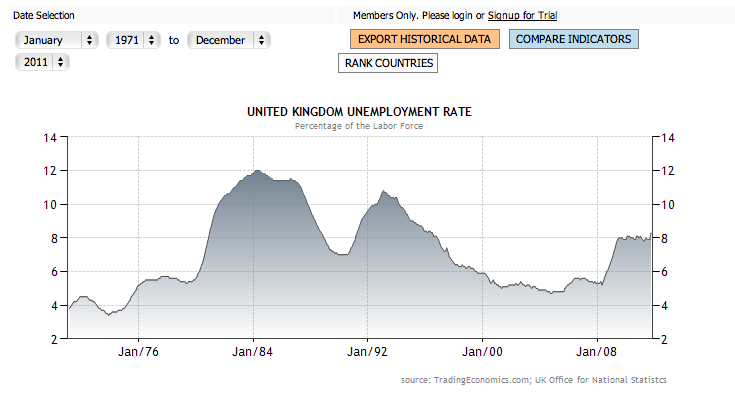The current figures show that there are 2.68 million unemployed and 463000 vacancies, which means 5.79 unemployed people for every vacancy. There is always a 'churn' of jobs so there will be vacancies at any one time but the number of vacancies illustrates how vibrant or stagnant the job market is, and ultimately until that vacancy number starts to rise, you won't get people back into work no matter what incentives you give them in terms of benefits etc.
It's a bit like saying you want more Super League clubs to get into the playoffs. You could put incentives like cutting the Sky funding for any club that finishes outside the top 8, it might make the competition more fierce, but you aren't going to get any more clubs into the top 8, there will still be 6 that finish outside it.
When unemployment is this high then the talk about the feckless and long term shirkers is futile as they are right down the bottom of the list for employers. There are a lot of employable people that have been made redundant and are looking hard for work, who are the most likely to be got back into work when the amount of job creation improves, but solving unemployment at this level comes down to job creation rather than incentives to work. It's not like there are a load of employers that can't find work for minimum wage jobs.
One thing I often hear from the "private sector is superior" types is that although they want the entire public sector to be cut, so that public sector workers are forced to get a "proper job" in the "productive sector" like them, they will also tell you that THEY would never employ an ex public sector worker in a million years, because they don't have the right work ethic, they also wouldn't employ anybody that had been out of work for more than 6 months, or any graduate from an ex-poly, so you can see why a lot of people are considered well down the list in employment terms.













